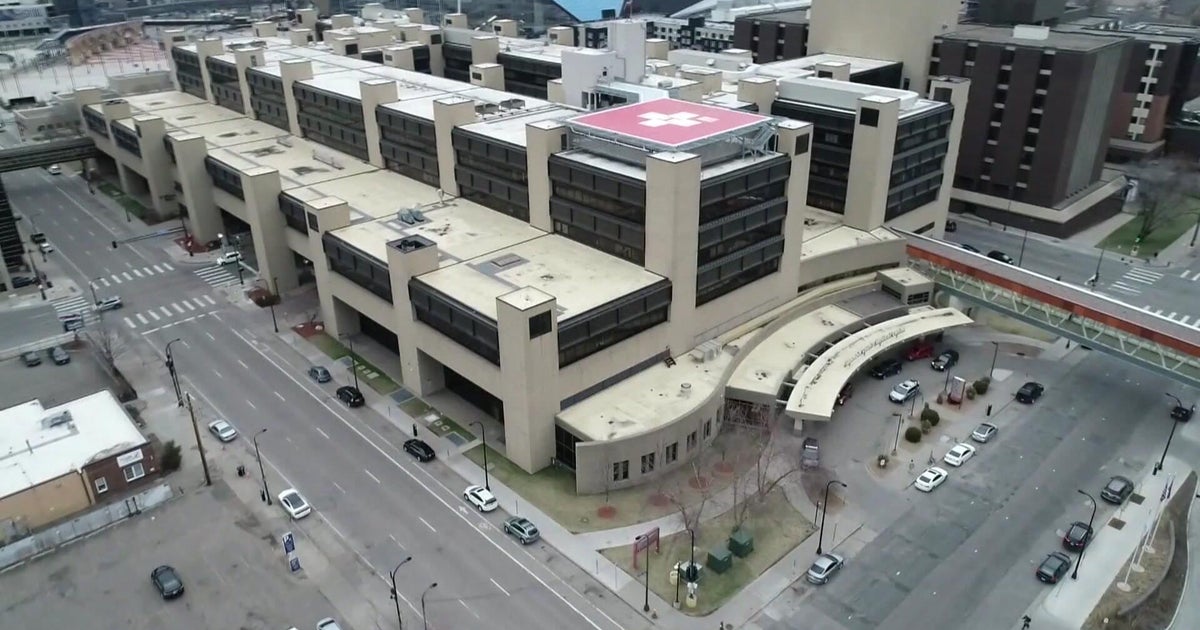Jesse Jackson: State Owes Detroit Millions
DETROIT (Talk Radio 1270) Calling Detroit "Ground Zero" in the nation's urban crisis, civil rights leader Jesse Jackson talked to Charlie Langton on his Talk Radio 1270 morning show Thursday about how to solve the city's problems.
The state is on the verge of hammering out a consent agreement that would put a nine-member board in charge of financial oversight of Detroit, forcing it to find budget savings and new streams of revenue. Detroit borrowed $137 million earlier this week through bonds to avoid going bankrupt this spring.
Before that, the city had already borrowed about $600 million to stay afloat since 2005.
Claiming the state of Michigan owes Detroit millions, Jackson said the state needs to "pay its debt" to its biggest city before moving on to anything else.
"The state owes Detroit some money and says it will not pay it until you have a plan," Jackson said. "What right do you have to hold my money on some condition?"
That stems from a deal former Gov. John Engler made a deal with detroit in the 1990s that said if they lowered city taxes slightly, the state would give them a payout of $200 million to compensate them for the loss of income. Detroit lowered the taxes, without a signed agreement, and never got the money.
To keep the state out of city finances, former Mayor Kwame Kilpatrick never followed up with former Gov. Jennifer Granholm, experts said. Now that the city is on the financial brink, the issue has come back.
"Most people don't know the state owes the city of Detroit money," Jackson said. "It doesn't matter that car insurance is $500 to $800 a month. Does it matter than banks that put 100,000 homes in foreclosure have no plans to reinvest? If you look at the combination of schemes here, it's exploitative."
Pointing out that the government was willing to bail out banks and the auto industry and create reinvestment plans for them, Jackson questioned why no one is willing to give Detroit the same treatment.
"I'm saying pay the city what you owe it," Jackson said. "Can you dismiss your biggest city?"
He said if the state wants to help Detroit, they should bring cash.
"Once you get a kind of diagnosis of the problem, you then move to a remedy, it's OK for the state to bring strong advice, but bring resources too. To give Detroit advice and no money is like giving an appetite with no food," Jackson said.
He added that government needs to find a way to bring more people to the city, especially city workers.
"These are structural crises seen as personal or local when they're not. For instance, the police, teachers firemen who work here and get the first cut of the beef, don't have to live here. They get the nectar...then move to the suburbs," Jackson said.
If more people lived in Detroit, the city would have grocery stores, parks, and better education, Jackson said, adding that Detroit needs serious structural change.
And City Council isn't to blame, he said.
"When you've got limited options, you make bad decisions. When you've got a size 8 shoe and size 10 foot, you've got a corn coming your way. It's a structural crisis. You can twist your toes all you want, you've got a structural crisis."
But, when a caller asked about the common complaint that it's racist to force outside financial oversight on Detroit, Jackson disagreed that racism is at the core.
"I wouldn't say that (it's racism)," Jackson said. "I think that the governor, by saying to the city that unless you accept my rules we will withhold money, that is flat-out unfair. The focus is on the mayor when it should be...Detroit is the biggest city in Mi. It's renowned around the world. My appeal to him was to have an economic summit meeting. Collectively, if they say it to the WHite House, they'll be heard, this is Michigan. You convene business, labor and work on a plan."
Not everyone was buying Jackson's story.
A caller, Jim from Northville, said, "I can't see the city coming back until they address the graduation rate of less than 25 percent... He seems to make a lot of excuses, but there's a lot of work that needs to be done internally."
Responding, Jackson said: "If the plants close and the jobs leave, the tax base goes, if people work here, but don't live here, there goes the tax base. You have less recreation, less development, less music, less art, less science. The school crisis is evidence of a city that's been led to (devastation.)"







